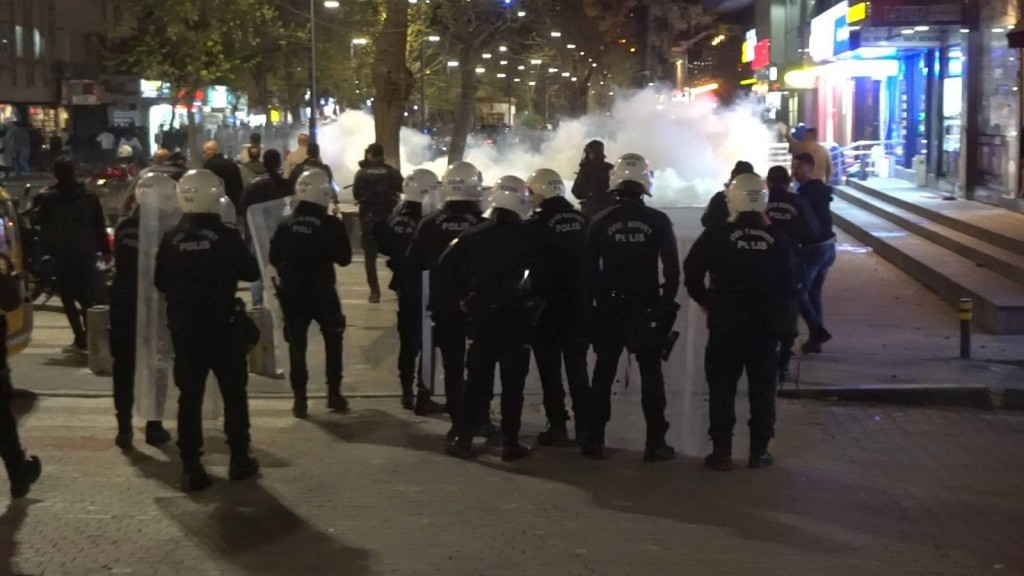In the past, the television was the surest way of moulding people’s perceptions, shaping their opinions and sneaking into their lives. Today, however, a relatively successful YouTuber can compete with major news programmes in terms of viewership. This is particularly true in a country like Turkey, where the quality of television has been eroded significantly and experienced journalists have brought quality journalism to their place of exile: the world wide web. Under these circumstances, the ruling Justice and Development Party (AKP)’s decision to regulate online broadcasting – the one domain where it cannot (yet) control the narrative – should not come as a surprise.
In an AKP-led move in March 2018, Turkey’s Grand National Assembly expanded the responsibilities of the country’s radio and television watchdog (the Radio and Television Supreme Council, known by its Turkish acronym RTÜK) to include internet broadcasting. The related regulation came into force in August 2019. It compels online broadcasters to obtain a license from RTÜK and subjects their content to state scrutiny. The apparent targets of the regulation are on-demand platforms such as Netflix, as well as regular and/or scheduled online broadcasts, such as the award-winning broadcaster Medyascope, that serve as critical sources of independent news in Turkey. However, the regulation’s vague language raises eyebrows as to its actual scope, which may range from professional broadcasters to amateur home video makers.
Journalists, lawyers, and experts have expressed deep concern. A law dealing with criminal content in online broadcasts (the Law on the Regulation of Publications on the Internet and Suppression of Crimes Committed by means of Such Publication, widely known as Law no. 5651) had already been in place for over a decade. According to a July 2019 report by the Freedom of Expression Association, this law was used to block over 245,000 websites and 150,000 URLs by the end of 2018. The August 2019 regulation was therefore not needed to deal with crimes, but rather focuses on removing content deemed “unethical” by RTÜK standards.
Established in 1994, RTÜK’s initial duty was to allocate frequencies to national television channels and to regulate their broadcasts. Ever since, it has singlehandedly decided what is appropriate, according to highly subjective cultural and national values, and has become notorious for imposing bans. The Council is run by nine appointees of the Turkish parliament, each serving six-year terms. Every two years, three members retire and are replaced by the parliament. The membership is reflective of the Grand National Assembly, with the governing party having the greatest number of members: Currently, the AKP has four RTÜK members while its coalition ally, the Nationalist Movement Party (MHP), and the main opposition Republican People’s Party (CHP) have two members each, and the Peoples’ Democratic Party (HDP) has one. As it is highly unlikely for pro-government members to be outvoted, RTÜK currently functions as an extension of the government’s will.
Over the last few months, after word got out that the government would attempt to regulate online broadcasters, public concern immediately centered on Netflix and the company’s future in Turkey. This was because pro-government newspapers justified the new regulations by pointing to Netflix content. While the daily Sabah blamed it for “normalizing and deeming innocent pedophilia, homosexuality and child abuse”, the daily Akit argued the platform engaged in “moral terrorism”.
RTÜK is already infamous for censoring content based on an arbitrary understanding of morality, mostly focusing on cigarettes, alcoholic beverages and sexuality, while turning a blind eye to discrimination or displays of violence, especially against women. It is thus concerning to imagine what might remain of liberal Netflix content under RTÜK surveillance. What is more disconcerting, however, is the fact that on-demand digital platforms such as Netflix or BluTV are paid-for services, meaning that their content should have been off-limits for a state regulatory body.
In a statement on August 8, CHP RTÜK member and media ombudsman Faruk Bildirici warned that allowing RTÜK to censor such platforms would be an outright intrusion into the viewers’ realm of freedom. “Demands by non-subscribers to alter paid-for content should not be grounds for meddling with the choices of subscribers”, Bildirici said in the statement. “Far-reaching rules may be put in place for television channels available to the wider public. But as one has to choose being exposed to on-demand content, applying the same far-reaching rules would not enhance protection, but intrude into the viewers’ realm of freedom.”
While the threat to the private sphere is excruciatingly real, the disproportionate focus on Netflix has diverted attention from the detrimental impacts of this regulation on the country’s remaining bastions of free speech: independent news channels online.
According to the new framework, all internet broadcasters that fall within the scope of the new regulation will have to subject their content to the Council’s scrutiny and apply to get a license. While the licensing fee is a mere 10,000 Turkish liras (around 1,600 euros) for radio broadcasts, it is a considerable 100,000 TL (around 16,000 euros) for on-demand platforms and video broadcasts, a burdensome amount for independent platforms in case they are made to apply. The question of which broadcasters will be required to apply is a critical one, as the wording of the regulation is dangerously vague and its practical application is to be decided by the RTÜK members.
It is hence unclear whether foreign media outlets that produce Turkey-specific content online will be brought under scrutiny. Many such outlets share content regularly, though their broadcasts aren’t uninterrupted, leaving it difficult to say whether they would count as scheduled broadcasts. International law firm Baker McKenzie weighed in to suggest in an online announcement that “foreign service providers and platforms” would each be asked to establish a legal entity in Turkey, apply for a license or a transmission authorization to be provided by RTÜK, pay taxes for their activities, and accept RTÜK supervision. The outlets would then have the right to legally challenge whether they fall within the scope of this regulation, Bildirici said in an interview for this article.
Most of these platforms are run by professionals who used to be the leading journalists of the country’s mainstream media outlets but were sacked from their positions in the last decade over their insistence in abiding by journalistic standards. These online platforms have enabled them to conduct independent journalism, at times critical of the government. Therefore, they are increasingly becoming a nuisance to the ruling party.
This discomfort became more evident in a recent report by pro-government think tank SETA Foundation (Foundation for Political, Economic and Social Research). In their report, SETA studied media outlets such as Deutsche Welle Turkish and BBC Turkish in terms of how they covered incidents deemed controversial by the government (such as the Gezi Park protests), the backgrounds of their employees, and even tweets sent out by their reporters.
Some experts believe an important reason for drafting this regulation was to exert control over these independent outlets that are currently beyond the government’s reach. According to Erol Önderoğlu, a Turkey representative for Reporters without Borders, over 85 percent of national mainstream media is under government control. However, foreign media outlets constitute an important exception to this rule.
“Even though the government controls almost all of Turkish media, these platforms started conveying news and information. They (the AKP) don’t want this, they are bothered by this”, Bildirici said in the interview. “What they are trying to do is to control this content.”
If the regulation is broadly interpreted, even personal YouTube or Twitter accounts might not be off the hook, experts warn. The regulation exempts “personal communications” from its scope but defines this term solely as “communication between persons”, omitting mention of social media accounts on Twitter or YouTube as a means of personal communication.
In an interview with BBC Turkish, former AKP-appointed RTÜK member Hamit Ersoy, who was among the drafters of this regulation, went so far as to suggest that the content of YouTube videos could also be subject to scrutiny, depending on RTÜK’s degree of manpower and technical resources. “If a (YouTube) broadcast violates (RTÜK’s) broadcasting principles, then that particular account will be held responsible – instead of YouTube – and access to the account in question would be restricted”, he said.
These developments are all the more troubling when considering the drastic media environment in Turkey, where many journalists are no longer able to do their jobs after mainstream media outlets were bought, seized or silenced. Turkey, whose status has deteriorated to “Not Free” on Freedom House’s Freedom in the World 2018 report, is currently the number one jailer of reporters across the world: According to the International Press Institute (IPI), today at least 130 imprisoned journalists and media executives reside in Turkish prisons. At the same time, as well-known and once widely read newspapers have diminished into government mouthpieces, audiences have also shifted to other outlets for reliable information. A Reuters Institute report states that some 40 percent of Turkey’s audience views online platforms as their main source of news, while an astounding 87 percent said the internet had been their main source of news in the previous week.
This prominence of the internet was partially enabled by respected journalists who either opened personal YouTube channels, created online newsletters or joined online platforms such as Medyascope, T24, or Bianet. The new RTÜK regulations, therefore, appear aimed at the last refuge of independent journalism. It is a stark reminder that there are many more battles to be waged to safeguard the right to information.




